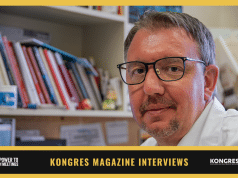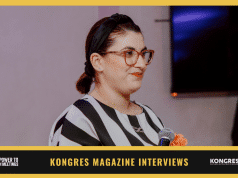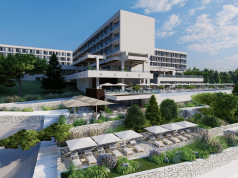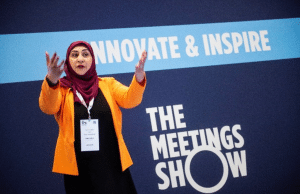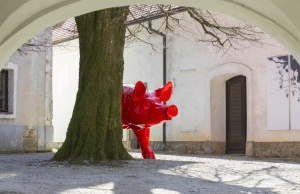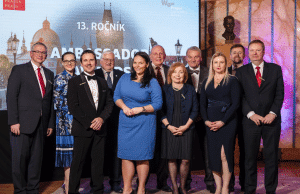“We had to make sure that all the hard work we put in dIDN’t go TO waste”
Q: How badly has COVID-19 affected the meetings industry in your country?
It is not a secret that the business events industry has been hit hard by the pandemic and business events had to come to a full stop globally. Naturally, Azerbaijan was not an exception either. However, it doesn’t mean that we stopped working too. On the contrary, we started to work harder because we knew that keeping the conversation and communication alive should be prioritized at the moment. Therefore, as most of the convention bureaus, we have directed our attention towards digital means to keep connected with both our local and international partners, creating and using opportunities for all of us to share our concerns, news and more importantly, how our actions will be shaped both during and after the pandemic.
Q: How much damage has the epidemic caused for your company?
One of the main challenges the pandemic brought was the fact that we had to change our approach in our activities completely and adapt our strategy for the current and even for future years. Plans which we thought of thoroughly before COVID-19 had to be cancelled. As a destination that made a quite positive name for itself in only a couple of years, we had to make sure that all the hard work we have put in doesn’t go waste. It was not an easy task considering the initial shock we all had at first. But it was quickly replaced with constant communication and finding solutions as to how to keep communication at both international and local levels alive to prepare for when events, be it hybrid or fully live, are allowed again.
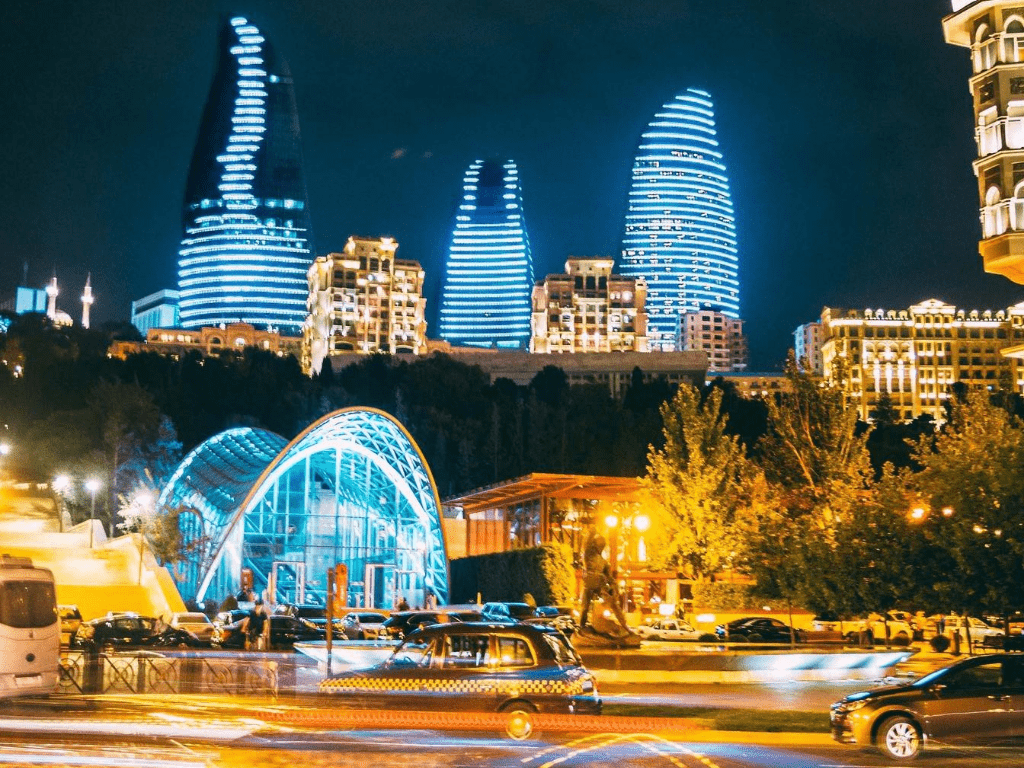
Q: How do measures put in place by regional governments help with exiting the crisis? What do you miss?
I think government support in helping the local businesses is definitely important, especially financial aid. The State Tourism Agency and Azerbaijan Tourism Board started working actively since the first news about the pandemic and arranged meetings with local businesses to understand the damages done to them due to the situation because of cancelled events, travels etc.
As a result of the analysis that was carried out, work on multiple fronts was carried out together with multiple state agencies to prepare support packages including salary compensations, tax holidays, concessions and exemptions as well as subsidized interest rates for a certain period.
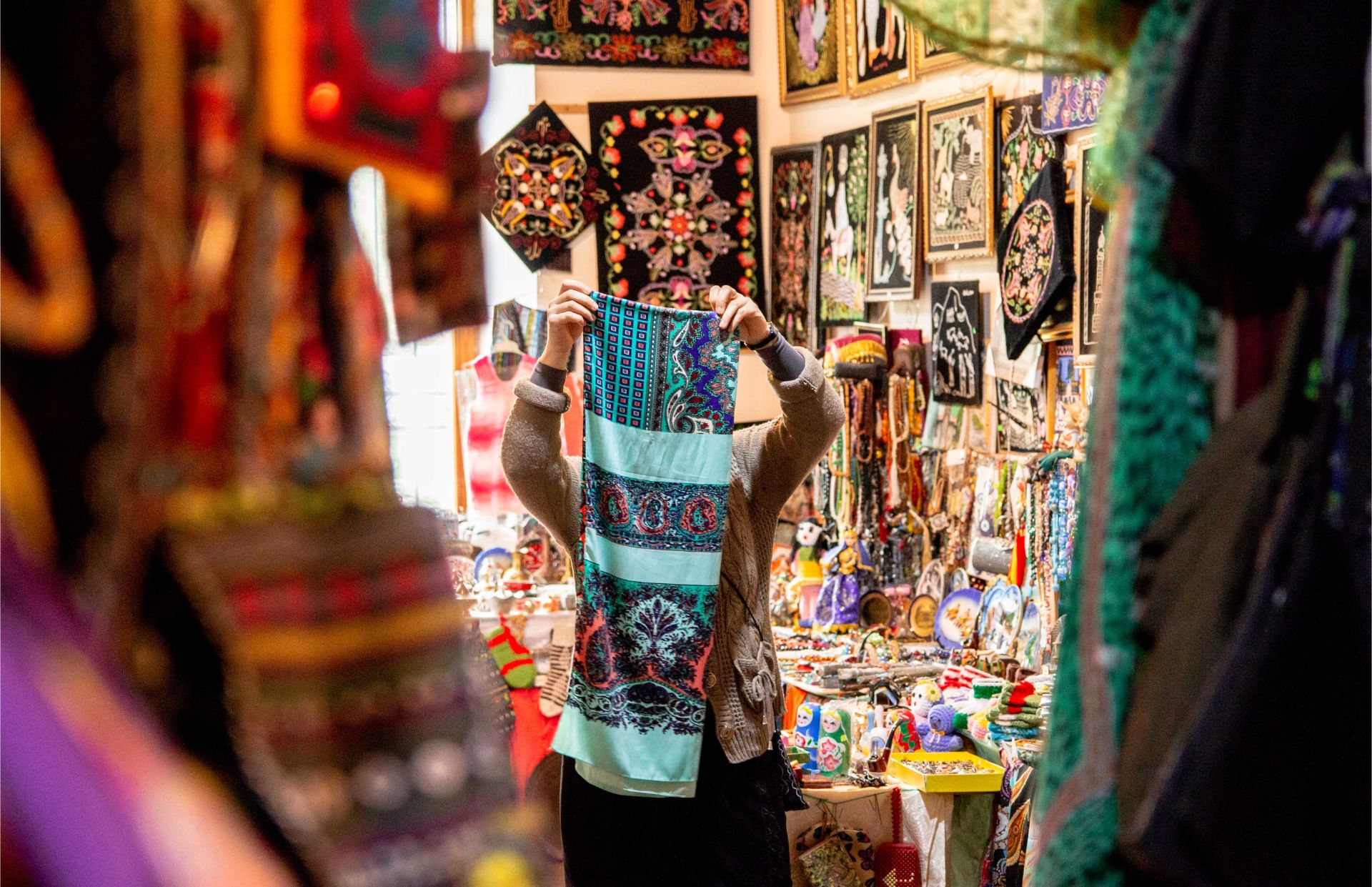
Q: Do you think the situation will get worse before it gets better? Have you prepared any preventive measures in case of a second coronavirus wave?
Even if we can’t say what will happen in the near future with absolute certainty, what we can say at this stage is that we now have a recovery plan in place, which is based on 4 phases. As I mentioned earlier, our initial strategy, defined at the beginning of the year, was completely revised and adapted to the situation according to these phases, fully aligned with the activities of the Azerbaijan Tourism Board and State Tourism Agency, so that we follow one direction. Thus, the strategy for the first phase, in which borders are closed and there is no way to meet in person, had 2 main directions: using digital means to keep communicating with stakeholders and supporting and increasing the engagement of local industries to find solutions and prepare support mechanisms together to diminish the damage done by the effects of COVID-19. The phase 2 strategy envisages that the spread of the virus is more or less curbed, and now we can organise domestic events. In the following phase, borders are expected to open gradually and regional events can happen now. The last phase is when we are at the post-COVID stage and we can finally welcome all international visitors.
Due to the unpredictability of the situation, the terms of our recovery plan can vary for sure. However, now that we have the necessary tools and responses for each phase, we feel more or less prepared for what might come next because of the pandemic.
We also realise how important it is to make sure that health and safety measures are in place, and these measures cannot be loosened even if the spread is curbed. At the very beginning of the pandemic, we developed the SAHMAN (Sanitation and Hygiene Methods and Norms) programme, founded upon safety, transparency, social responsibility and inclusivity. The programme aims at raising health and safety standards, involving all the necessary public and private partners across the tourism and business events industries, focusing on accommodation, F&B and transportation providers. Together with that, we make sure that key industry players are taking all necessary measures for post-pandemic events, including hotels providing for a safe stay and venues equipped for hybrid events. And as of now, more than 200 local partners have successfully finished the training and received the SAHMAN badge, which certifies that they are capable of operating under the health and safety standards set by the WHO.
Q: What has the epidemic taught us about the current state of the meetings industry? Will the epidemic also bring something positive?
I strongly believe that challenging times bring opportunities. I think over the last few months we have all learned a lot of things. I think, first of all, that all of our industry members who haven’t given up during this period have proved that they have learned how to be mentally strong in the first place.
In addition to becoming more resilient and stronger in the face of a global challenge, I would say that being flexible now and in future activities is another thing we have taken from these tough times. The situation with the pandemic taught us we should live with today’s reality and be able to adapt our approach according to the changes happening globally and affecting literally everyone in the world.
As changing our activities directed us to use digital opportunities more, we realised how we have usually neglected their importance and strength, as the person we needed to talk to would usually be available next door. The same goes for our industry, where large networks have been built on international platforms. As I mentioned earlier, we have continued communicating with our international partners through digital means. We have connected with industry players, association members, and stakeholders both locally and internationally to communicate about the current situation and talk about how we are preparing for the new way of hosting events. With the isolation rules, we came to learn that technological opportunities should be made use of and given more attention today. We came to terms with staying connected even in isolation and doing so in difficult times made us realise the need to share to keep growing together and not lose hope.
Q: Do you think the quarantine period was beneficial for unwinding and gathering new creative ideas for the future?
I definitely think that the quarantine period gave us a lot to think about. As I have mentioned, it literally allowed us to stop everything and rethink our actions with a more flexible approach in mind. With changing plans and priorities, we had more time and opportunities to think of our position in the business events industry. We realised that until we are back to normal and events are happening physically if you want to stay in the game, you have to change your mindset. As you saw with our recovery plan, as soon as live gatherings are allowed, regional events are planned to follow domestic ones. From this perspective, we have participated in virtual meetings with the CVBs in our region, discussing developments and possible solutions to discover the potential of the region with joint resources to stay relevant. Another important thing this period has taught us is that focusing on unique selling propositions with new authentic products, especially for corporate business events, to further strengthen the position of Azerbaijan, especially Baku as a meetings destination, is more important than ever.
Also, we are not only focusing on corporate events and we have made association events an important part of our agenda in recent years. This period gave us plenty of time to expand our research database on these events as they usually have a lead time of years. Having combined all the necessary elements, including local members of international associations, who are a great asset in our research, I believe we will see progress in attracting association events soon because of the constant work we have been doing as an emerging destination regarding this part of our industry.
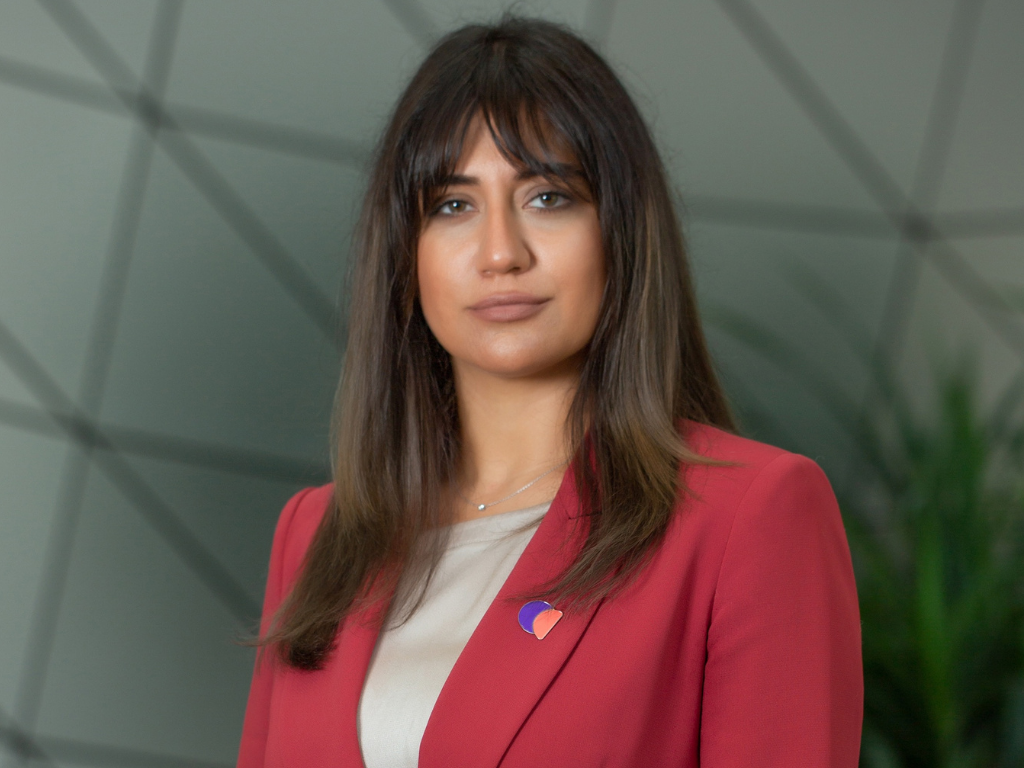
“Azerbaijan is a new and emerging destination for business events”
Q: What are some alternatives to live events? Are live events a thing of the past or will we continue to meet in person after the coronavirus?
We all have observed that digital communication for an extended period of time is possible. And with hybrid events prevailing on the horizon, it seems like virtual reality will make up an important part of our industry now. However, I don’t think live events can be completely replaced by online ones. One of the main purposes of events is to bring people together and create an atmosphere where participants can exchange their ideas and experiences face-to-face. In my opinion, online conferences, exhibitions, etc. can’t deliver the message needed as effectively as in-person events do. Besides, face-to-face meetings have long been seen as critical to building trust. It is natural that the current situation requires us to continue to live with virtual reality, especially with hybrid events, and these events will most probably continue to be a part of our agenda for an even longer time. But I think a lot of us are looking forward to getting back to those in-person experiences that literally made us feel alive.
Q: How have you managed to connect the digital and analogue world at your events and in business?
Besides our work in connecting with our partners via numerous webinars, we have also come up with some innovative solutions to extend our global reach using digital means. One of them was creating an e-learning platform, which has been designed to aid the training and development of our partners globally together with virtual tours and inspections of Baku so that people can still enjoy the beauty of our city. We have also sponsored a global virtual hackathon, “Hack COVID-19”, to seek technological solutions to fight COVID-19 together with our partners back in April.
Needless to say, we are still working on how to best use digital means to aid us in this and the upcoming period.
Q: In these turbulent times, what separates your destination from the competition?
I think you already know that Azerbaijan is a new and emerging destination for business events and in just under 2 years we have made considerable progress in making our name heard within the industry. With our world-renowned venues like the Heydar Aliyev Centre and Baku Convention Centre, SKYTRAX certified international airport, hotels of various categories, efficient transport service as well as warm hospitality, rich culture, ancient heritage, amazing nature and delicious cuisine, I would say that Azerbaijan already had an upper hand in the industry. What we needed to do was to approach local industry players holistically to make sure that event participants will have the best experience here, while also ensuring that international industry players are aware of the opportunities they have in Azerbaijan.
Coming to the tough and uncertain situation brought on by the pandemic, I think our main advantage is that we were able to react quickly once the pandemic was announced. The SAHMAN programme I have emphasized previously was launched back in April, and we have had quite enough time to directly monitor the hotels and venues to see if they comply with the sanitation and hygiene rules of the programme they have joined. Besides the safety and health measures introduced in time and the digital communication we preserved, our local partners worked on measures for hybrid events pretty quickly as well.
I can certainly say that we have been working on every point nonstop that will help us keep our name front of mind, and I think a strong will and determination is what we all need to make it work however tough the situation is.
PERSONAL QUESTIONS FOR SEVDA
Q: What will we be discussing over coffee at the same time next year?
I hope we will look back on the last year and talk about the enriching experience we have had with a lot of learning opportunities. The pandemic has already taught us a lot both in terms of personal and work life. I just hope that everyone will get something good out of it and use what they have gained for a better future for their community. And also, I am positive that our industry will revive with stronger purposes that will empower communities, promote positive messages and educate groups of people on subjects that matter most.
Q: Where do you find inspiration for events in these tough times? Do you have a favourite event agency or role model?
Each and every person and organisation that continues to work and create have my utmost respect. I admire greatly all of our partners and stakeholders, both locally and internationally, who have continued to fight, reach out and come up with new ideas as well as solutions so that our industry overcomes the current challenge we all face and revives again. I think you would agree with me when I say that all these active stakeholders, who are doing their best to keep communicating and building platforms for all of us to share and learn, are the pillars of the business events industry that will make a positive difference. I see how our industry doesn’t give up, and this is already a strong motivation and inspiration for me.
Q: What inspires you in your daily life? (music, books, nature…)
Aside from my family and work, I take great inspiration from alpinism. Recognised as the Intangible Cultural Heritage of Humanity by UNESCO, I simply admire the values of this activity, mainly the values of effort and sharing. Another thing I love about climbing up different summits in the mountains is that it requires a lot of strength and commitment, both physically and mentally. And achieving the goal of reaching a summit after weeks of preparation of your body and mind gives you immense confidence in yourself. There is only one way to be successful at climbing a mountain, and that is to take no step back once you are on it. It pretty much sums up my vision in my personal and professional life to keep working towards my goal no matter how difficult it might be.



